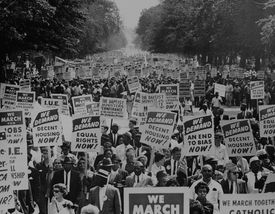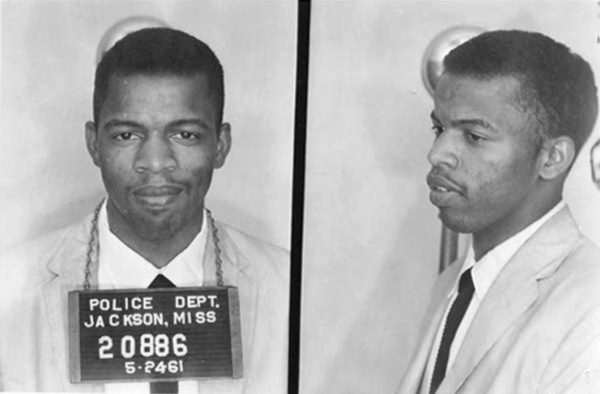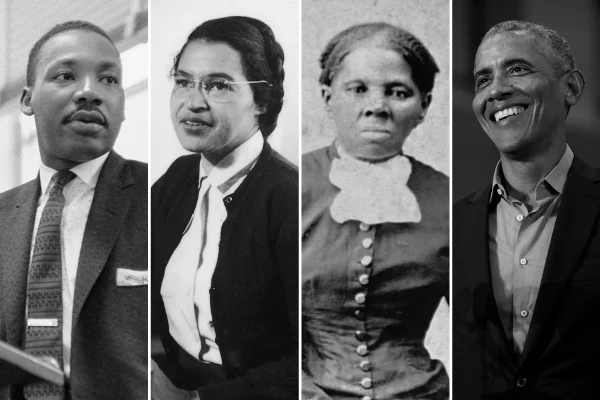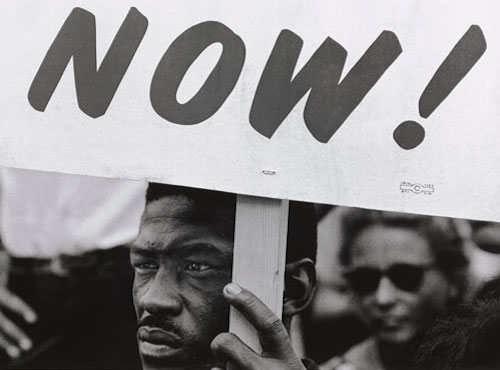The acronym “POC,” which stands for people of color, signifies people who do not identify as white or of European heritage. This demographic includes African Americans, Asian Americans, Native Americans, Pacific Islanders, Latinos, and those of multiracial backgrounds. Pertaining to this topic, I’d like to speak about how black people have recently been in a struggle for their rights. I’d also like to recognize that African Americans in the United States have endured discrimination since colonial times, a legacy that continues to manifest in society. This ongoing struggle for equality and recognition is the focal point of my article today.
In a recent statement, President Donald Trump is regressing civil rights for Black Americans by reversing advancements made over the past six decades. This includes the potential for legalized segregation in public spaces, allowing contractors to establish segregated restaurants, waiting rooms, and drinking fountains. The landmark Civil Rights Act, enacted by former President Lyndon B. Johnson in July 1964, had previously outlawed discrimination in these public venues, mandated the integration of schools and facilities, and made employment discrimination illegal, transforming the landscape of civil rights in America. Furthermore, during the Reconstruction Era of 1867, three pivotal constitutional amendments were ratified: the 13th Amendment (1865), which abolished slavery; the 14th Amendment (1868), which granted citizenship to Black individuals; and the 15th Amendment (1870), which secured voting rights for Black men at a time when many were disenfranchised. These historical milestones underscore the ongoing fight for equality and the significance of legislative protections against discrimination.

Retaining Trump’s act not only undermines the rights of Black individuals in society but also fails to honor the sacrifices made by Civil Rights activists during the 1964 Civil Rights Act. Prominent figures like Dr. Martin Luther King Jr., celebrated for his iconic “I Have a Dream” speech from the 1963 March on Washington, fought tirelessly for these rights. He was also active in protests against low wages and unsafe working conditions following the tragic deaths of two Black workers.

Continuing on, many African American activists stood for the rights we have today, like John Lewis, who led the Student Nonviolent Coordinating Committee (SNCC) and famously endured police violence during the 1965 march across the Edmund Pettus Bridge in Selma, Alabama. Bayard Rustin, a crucial figure in the nonviolent movement, faced discrimination for being openly gay and was often excluded from discussions. Diane Nash played a pivotal role in the SNCC and led the Freedom Rides of 1961 while also organizing sit-ins at Nashville lunch counters that denied service to Black patrons. Rosa Parks and Ralph Abernathy were integral to the Montgomery Bus Boycott, with Parks refusing to give up her seat to a white man, sparking the boycott, and Abernathy serving as a key organizer. Their efforts ultimately contributed to the U.S. Supreme Court ruling that declared segregation in public transportation unconstitutional. Moreover, Rev. Jesse Jackson continued the legacy of nonviolence and civil rights advocacy, establishing organizations like the Rainbow/PUSH Coalition and running for the Democratic presidential nomination in 1984 and 1988. He was awarded the Presidential Medal of Freedom in 2000 by former President Bill Clinton.
What’s next for Black History?

President Donald Trump issued an executive order accusing the Smithsonian Institution of being influenced by a divisive, race-focused ideology. This action raises significant concerns about the potential alteration of U.S. history. History serves as a foundational element that shapes both the nation and its people. Every region across the United States has its own historical narrative, regardless of whether those events are viewed as positive or negative. Clarissa Myrick-Harris, a professor at Morehouse College and a historic HBCU in Atlanta, expressed her apprehension, stating, “It feels like we are moving toward an effort to deny the existence of slavery, as well as the reality of Jim Crow laws, segregation, and the racial violence endured by Black communities, families, and individuals.” The executive order is apparently supposed to aim to “restore truth and sanity to American history,” and it grants Vice President JD Vance the authority to oversee all Smithsonian programs and centers, with the mandate to eliminate what Trump describes as “improper ideology” from these institutions.
Trump also subsequently tasked U.S. Secretary of the Interior, Doug Burgum, to determine if monuments “have been removed or changed to perpetuate a false reconstruction of American history.” Since January of 2020, Trump has been a strong defender of Confederate statues, many of which were removed following the murder of George Floyd in 2020 due to police brutality. Continuing, he also signed an order to dismantle federal agency programs, known as DEI programs. He believes these initiatives are “wasteful, immoral and shameful.” He has once again signed an order to revoke Executive Order 11246, originally enacted by President Lyndon B. Johnson in 1965. This move dismantles a key framework that has promoted racial diversity within the federal government.
In summary, individuals of color deserve to be treated with the same equality and respect as everyone else. The principles established during the Civil Rights Movement and other significant historical events concerning people of color should be protected. After all, the value of history diminishes if we fail to uphold and preserve it.
Sources
- John Lewis – African American Civil Rights Movement (2017). African-American-Civil-Rights.org. http://www.african-american-civil-rights.org/john-lewis/#google_vignette
- Congress and the Civil Rights Act of 1964. (n.d.). National Archives. Retrieved April 23, 2025, from https://www.archives.gov/exhibits/treasures_of_congress/text/page24_text.html
- Know Your Rights | Race, Ethnicity, or National Origin-Based Discrimination (n.d.). ACLU. Retrieved April 23, 2025, from https://www.aclu.org/know-your-rights/discrimination-on-the-basis-of-race-ethnicity-or-national-origin
- The Politics Of Passing 1964’s Civil Rights Act (2014, April 4). NPR. Retrieved April 23, 2025, from https://www.npr.org/2014/04/04/299063588/the-politics-of-passing-1964s-civil-rights-act
- Simmons, S. (2025, March 18).’Segregated facilities’ are no longer explicitly banned in federal contracts. NPR. Retrieved April 23, 2025, from https://www.npr.org/sections/shots-health-news/2025/03/18/nx-s1-5326118/segregation-federal-contracts-far-regulation-trump
- Tensley, B. (2025, March 31). The End of DEI: What Trump’s Executive Orders Mean for Black Americans. Capital B News. Retrieved April 23, 2025, from https://capitalbnews.org/trump-executive-orders-black-americans/
- 25 Black Civil Rights Activists You Need to Know. (n.d.). Freedom Forum. Retrieved April 23, 2025, from https://www.freedomforum.org/black-civil-rights-activists/





